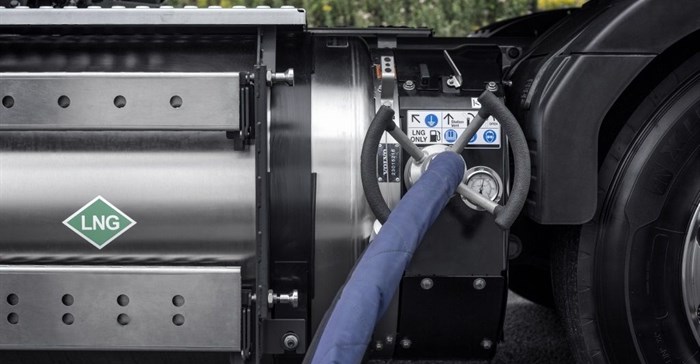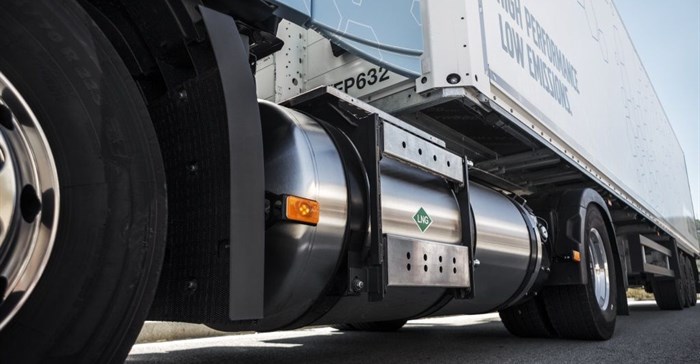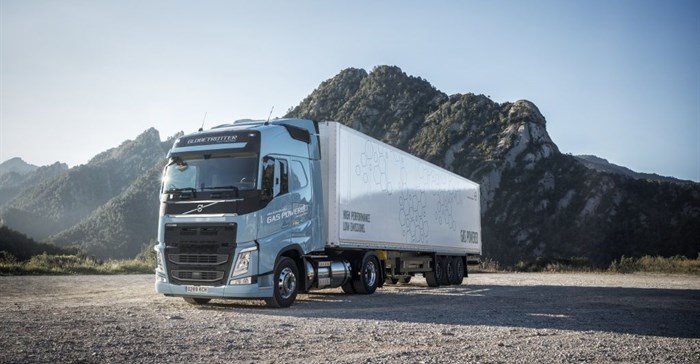






The new Volvo FH LNG and Volvo FM Liquefied Natural Gas (LNG) are available with 420 or 460 Horsepower (hp) for heavy regional and long-haul operations.
“With our new trucks running on liquefied natural gas or biogas, we can offer an alternative with low climate impact that also meets high demands on performance, fuel efficiency and operating range. This is a combination that our customers in regional and long-haulage require,” says Lars Mårtensson, director environment and innovation at Volvo Trucks.
“While these trucks will not be available to the South African market in the foreseeable future, Volvo Trucks has reduced the emission of air pollutants from new Volvo Trucks currently on sale in our market considerably and decreased fuel consumption as well as the overall impact on climate. With the development of these products, the company reiterates its commitment to become the most preferred sustainable transport provider,” says Joe Pretorius, brand manager Volvo Trucks South Africa.

Instead of an Otto cycle engine, which is the conventional solution for gas-powered vehicles, the Volvo FH LNG and Volvo FM LNG are powered by gas engines utilising diesel cycle technology. This means that an operator who chooses gas can do so without compromising on driveability, fuel efficiency, or reliability. Volvo’s 460 hp gas engine delivers maximum torque of 2,300Nm while the 420hp version produces 2,100Nm. This is the same as Volvo's corresponding diesel engines. Fuel consumption is on a par with Volvo’s diesel engines, but 15 to 25% lower than for conventional gas engines.
The fuel used is natural gas in the form of LNG or biogas, known as bio-LNG. Both fuels consist of methane. If biogas is used, the climate footprint can shrink by as much as 100% and if natural gas is used, the reduction is 20%. This relates to emissions from the vehicle during usage, known as tank-to-wheel.
In order to maximise the driving range, the tanks are filled with LNG, which is stored at 4–10 bar pressure at a temperature of -140 to -125 °C. The biggest fuel tank variant contains enough LNG for a range of up to 1000km. Refuelling takes about the same time as filling up with diesel. When driving, the fuel is warmed up, pressurised and converted into a gas before it is injected into the engine. In order to ignite the gas, a tiny quantity of diesel is added at the moment of injection. A 100% reduction of CO2 emissions requires that fossil diesel is replaced with HVO (hydrogenated vegetable oils) and combined with bio-LNG.

“Natural gas offers clear climate upsides, it is competitively priced in many countries, and there are sufficient reserves to justify large-scale use. Our focus on LNG vehicles is creating new prerequisites for our customers to run fuel- and cost-efficient operations. At the same time, we’re making it possible for heavy truck operations to considerably reduce their climate impact,” says Mårtensson.
Sales in Europe of both the Volvo FM LNG and Volvo FH LNG will start during spring 2018.